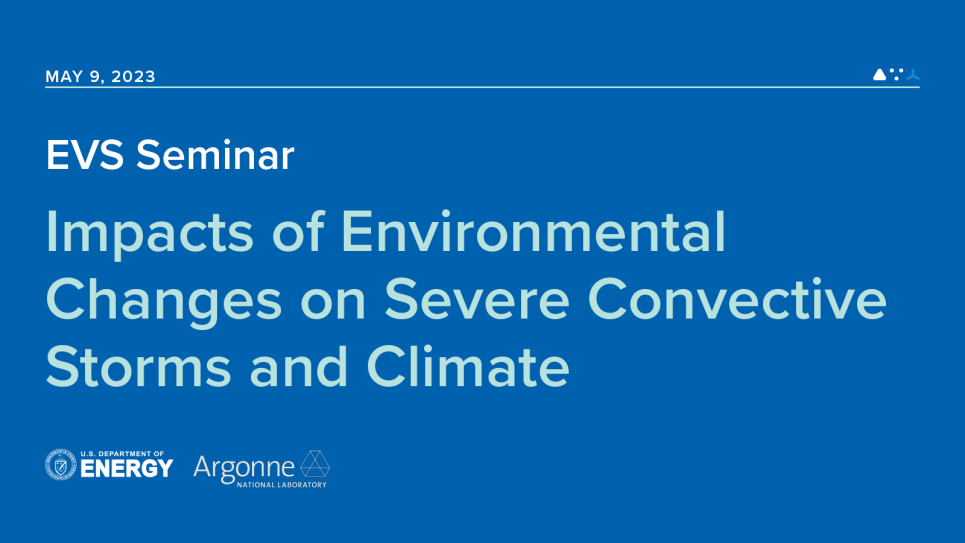
Impacts of Environmental Changes on Severe Convective Storms and Climate
The rapid evolution of our environment due to air pollution, urbanization, anthropogenic climate warming, and increased wildfires may significantly impact weather and climate. However, there is a critical gap in our understanding of how the evolving environment shape severe convective storms (SCSs)- an extreme class of deep convective clouds that produce large hail, damaging winds and/or tornadoes, and torrential rainfall, due to the small-scale nature of SCS processes, as well as in model presentations for weather and climate projection. In this talk, Dr. Fan will discuss our research investigating the unexplored links between SCSs and the evolving environment impacted by human activities. Specifically, she will focus on the impacts of anthropogenic aerosols, urbanization, anthropogenic climate warming, and wildfires on storm intensity, extreme precipitation, hailstones, and tornadoes, using high-resolution model simulations in combination with observations. Dr. Fan will also discuss our recent efforts to improve climate simulations in clouds, radiation, and aerosol-cloud interactions for DOE Energy Exascale Earth System Model (E3SM). Finally, she will outline the challenges we face and potential future research directions.
Dr. Jiwen Fan is a Laboratory Fellow at Pacific Northwest National Laboratory (PNNL). She earned her Ph.D. in 2007 from Texas A&M University. Her expertise encompasses atmospheric chemistry, aerosols, clouds, convective systems, severe weather, and climate. She has worked on improving fundamental understanding and model predictions in these fields. Jiwen has published 124 peer-reviewed journal articles and contributed to two book chapters. She has been honored with numerous awards, including an AMS Fellowship, the AGU ASCENT award for exceptional mid-career scientists, and a DOE Early Career Research award. She has also played a leadership role in several large collaborative research projects, including the DOE Climate Model Development and Validation (CMDV) on mesoscale convective systems (CMDV-MCS) and the Enabling Aerosol-cloud interactions at GLobal convection-permitting scalES (EAGLES). She has chaired and served on numerous committees in AMS, AGU, and DOE. Currently she serves as an editor of the Journal of Advances in Modeling Earth Systems (JAMES) and serves on Aerosol-Cloud-Precipitation-Climate (ACPC) Science Steering committee and International Commission on Clouds and Precipitation (ICCP).